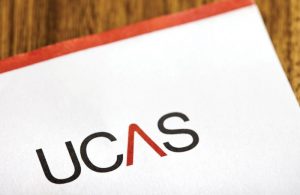An Example of a Successful Medicine Personal Statement
Below is an example of a strong medicine personal statement that the Medicine Answered team improved. This medicine personal statement rewarded the applicant with interviews at all four medical schools, helping them to secure four offers. We have kindly been granted permission to post it. A complete analysis follows, showing paragraph by paragraph precisely what makes this medicine personal statement strong and how the multiple weaknesses initially present were corrected. This will help you to do the same and write a powerful medicine personal statement. Note: this medicine personal statement is of an A-level candidate. It is still very relevant to graduates. However, later in this article, we advise specifically on writing a Graduate Entry Medicine personal statement and the critical differences all graduates must consider.
 The writing style of this edited medicine personal statement was purposefully designed to demonstrate that the candidate is well experienced, with an excellent insight into a medical career, despite their limited clinical work experience (which is only shadowing a GP very briefly. The operation that is described was shown as a video link when attending Medlink, not via hospital work experience). It is purposefully written in a style that shows that the candidate’s non-clinical experiences have clear transferability to medicine. This was a critical feature that the initial Medicine personal statement lacked.
The writing style of this edited medicine personal statement was purposefully designed to demonstrate that the candidate is well experienced, with an excellent insight into a medical career, despite their limited clinical work experience (which is only shadowing a GP very briefly. The operation that is described was shown as a video link when attending Medlink, not via hospital work experience). It is purposefully written in a style that shows that the candidate’s non-clinical experiences have clear transferability to medicine. This was a critical feature that the initial Medicine personal statement lacked.
This medicine personal statement does an excellent job of using the limited characters available to illustrate what skills the candidate gained from their activities; rather than using most of the characters to explain what these activities are. However, this is done skilfully so that the reader still clearly knows enough from these brief descriptions to understand what the activities are. This use of succinct language frees up characters so that they can instead be used to discuss the meaning and insight that the candidate gained from these activities.
Failure to illustrate what a candidate has learned is a classic mistake in many medicine personal statements. This was a particular issue this candidate had in their initial Medicine personal statement. They had many different types of experiences to list and could not describe them succinctly, causing their Medicine personal statement to far exceed the character limit. By using a more succinct writing style and focusing on illustrating activities rather than describing them, this reviewed version corrected this common medicine personal statement weakness.
UCAS UK Medicine personal statement example which received four offers for interview
 Note on plagiarism: There are various medicine personal statement examples online, however, remember that a medical school personal statement is unique to you. UCAS use sophisticated plagiarism detection software to see how similar your medicine personal statement is to those previously submitted. It detects paraphrasing and other attempts to hide plagiarism. Further information about writing UCAS personal statements can be found on the UCAS website. You can also use our comprehensive free guide on writing a medical school personal statement in 10 steps.
Note on plagiarism: There are various medicine personal statement examples online, however, remember that a medical school personal statement is unique to you. UCAS use sophisticated plagiarism detection software to see how similar your medicine personal statement is to those previously submitted. It detects paraphrasing and other attempts to hide plagiarism. Further information about writing UCAS personal statements can be found on the UCAS website. You can also use our comprehensive free guide on writing a medical school personal statement in 10 steps.
“I wish to study medicine as I have long held the ambition to pursue a career that would help others and contribute to the community. As a carer for my grandmother, who has severe arthritis, I have seen how much of a difference good healthcare can make to her life. Shadowing a GP and witnessing the reassurance and help given to patients reinforced this and strengthened my ambition to study medicine.
A Medlink lecture on psychiatry sparked my interest, so in college, I co-founded and led a mentoring group called ____ mentoring. Using concepts from cognitive behavioural therapy, I mentored students with low self-esteem or who were having problems at college. I taught after-school lessons on topics such as dealing with failure, stress and goal setting. Selecting a team, delegating work and organising meetings strengthened my leadership skills, while working to strict deadlines improved my organisation. We presented our work to an NHS psychologist, who gave us valuable feedback. We are currently filming our programme to make it available online and in other colleges.
I undertook a residential stay at a holiday home for disabled people, where I took guests on day trips and helped to feed and toilet them. Many guests were completely reliant on carers and could not communicate verbally. At times, they would become violent. At first, I found this intimidating, but during the two weeks I learnt how to deal with these situations. I also volunteered at a summer playscheme where several children had learning disabilities. Being responsible for groups of children increased my confidence in caring for others: I found dealing with quieter children and including them in group activities to be rewarding. To develop my understanding of the children I read several books about how learning disabilities affect peoples’ lives.
Teamwork is vital in all aspects of medicine, which I find very appealing. I witnessed a live scoliosis surgery, during which I saw how the outcome depended on the skill and dedication not only of the surgeon but also of every other member of the team. At the GP, I learnt how the clerical staff and nurses were vital in the running of the practice.
Medicine is a dynamic profession that will continue to undergo major advances in the next few decades. These developments will require a commitment to lifelong learning, and I find the prospect of this exciting. I have attended lectures on topics such as premature birth and pharmacogenetics. During a lecture on RNA Interference (RNAi), the lecturer stated RNAi could be the most important development in medicine since antibiotics. Intrigued by this claim, I completed a 2500-word essay on RNAi and its impact on medicine. It was a challenging topic, but I found that I enjoyed using post-A-level books and medical journals, which improved my research skills.
Next year, I will be travelling through Asia and Europe. I have secured work at a Romanian orphanage and will start a placement at ______________ hospital this October. I have also applied for a 10-week development and teaching project in Africa.
I am currently learning Thai Boxing and sign language and taking courses in self-development and memory improvement. I participate in basketball tournaments and play tennis. I play the violin to grade 3 and find music helps me to relax. I gained a 200-hour Millennium Volunteers award, a v50 award and I am currently completing a Gold DofE award. I am part of a focus group for a national volunteering organisation. We organise events and promote the benefits of voluntary work to individuals and organisations.
My experiences have made me absolutely committed to becoming a doctor, and I believe that they have also prepared me to cope with the demands of studying medicine. I realise that the long hours and often stressful situations which doctors work in are daunting, but it is a challenge I am willing to meet because of the satisfaction that I find in making a difference to peoples’ lives.”
Analysis of this Medicine personal statement
The overall structure of this Medicine personal statement.
 You will notice that each paragraph of the above reviewed medicine personal statement has a clear theme, e.g. motivation to study medicine, teamwork, caring work experience etc. The reason for this is that grouping multiple related points together in succession reinforces each point. It makes the overall message that the author is trying to convey to the reader more obvious and memorable than if the author scattered these points and examples throughout their Medicine personal statement. It also gives the Medicine personal statement structure and a smooth flow, so it reads like a story.
You will notice that each paragraph of the above reviewed medicine personal statement has a clear theme, e.g. motivation to study medicine, teamwork, caring work experience etc. The reason for this is that grouping multiple related points together in succession reinforces each point. It makes the overall message that the author is trying to convey to the reader more obvious and memorable than if the author scattered these points and examples throughout their Medicine personal statement. It also gives the Medicine personal statement structure and a smooth flow, so it reads like a story.
The initial medical school personal statement lacked a smooth flow as it skipped from point to point without any clear connection between the points. This also made it very easy for the reader to miss certain points or to forget them after they finished reading the Medicine personal statement. Therefore in this reviewed version, we took different scattered points throughout the document and grouped them into themed paragraphs giving the medicine personal statement structure and flow, making it easier to follow and read more like a story.
Paragraph 1 Of This Medicine Personal Statement
Notice that this Medicine personal statement opening paragraph has one central theme: doctors can help people -> the author has seen this for himself -> this fuels his desire to study Medicine -> he has confirmed this through work experience.
What is done well in this edited opening paragraph, is an event is described, and this is followed up by explaining the reason why this makes the author want to study Medicine. The candidate says how he was a carer for his disabled grandmother, and he shadowed a GP. In the unedited version, this was all he wrote. These are just statements and don’t say why that would want to make him study Medicine. Plenty of people look after a disabled relative but do not want to be a doctor so why does the author? However, in the edited medicine personal statement, we added the reason why his grandmother and the GP work experience caused him to want to study Medicine. Of course, the space is so limited in a medicine personal statement that you cannot expand on points very much. A deliberate choice has to be made about which points should be developed and which should not.
Note that the reasons for studying Medicine and examples used in this opening paragraph are not original. There is no unique Medicine personal statement opening line. This is a relatively typical Medicine personal statement opening paragraph. However, that is completely fine. These are solid reasons for studying Medicine and are true for the candidate.
Paragraph 2 Of This Medical Personal Statement
The edited version of paragraph 2 does an excellent job of succinctly explaining an unknown project to the reader without becoming verbose or complicated. It demonstrates what skills the candidate has learned, and they are perfect for studying Medicine, so this is a great example to use. Very few characters are wasted on describing the contents of the lecture or attending Medlink as the other content in this paragraph is far more impressive and important to write. For this reason, it was edited in this way as the unedited version was verbose and wasted many characters on explaining things such as “I attended the Medlink residential course which had various lectures including ….etc.” These do not add anything to enhance the author’s accomplishments and are not needed for narrative purposes either. The assessor already knows what Medlink is.
Many candidates try to state in their Medicine personal statement that they possess the ability to deal with pressure and have good stress/time management skills etc. The edited personal statement makes it more obvious to the reader that the candidate has taught these skills to others. This implies to the reader that the candidate understands these concepts well enough to be able to teach them to others. This is far more effective than if the candidate merely claimed to have these skills. The original wording in the candidate’s initial medicine personal statement was sloppy, so the teaching element was less clear. This is corrected in the reviewed medical school personal statement.
Paragraph 3 Of This Medicine Personal Statement
These are two good examples of caring role work experience, and in the unedited version, the candidate gave some insightful thoughts on things he learned. However, it was mixed in with lots of unnecessary content which diluted the strength of the good points. In this edited version, this is a powerful paragraph because the writer omits the extra material. This causes the remaining text to be more powerful, and it now shows that the candidate has keen self-awareness and insight. He can extract solid learning points from his experiences.
Essentially the candidate is saying he was acutely aware of how he felt during the experiences. He knew that it was challenging to deal with people who had limited communication skills, who could become violent (he even used the word intimidating) and when he was responsible for groups of children. Despite this, he persisted with these experiences and learnt from them. This demonstrates that he is a self-reflective learner. The statement about doing further reading shows how he is an independent learner. He can identify his own learning needs and knows how to pursue them. Being a self-reflective and independent learner is essential for studying Medicine particularly in PBL courses. The candidate is showing he has these skills as well as a lot of maturity and self-awareness in this paragraph of his medicine personal statement.
Paragraph 4 Of This Medicine Personal Statement
 Notice how this paragraph also has a theme – teamwork. Again, we took various examples scattered throughout the initial medicine personal statement and grouped them into this paragraph about teamwork. This gave the entire medicine personal statement more structure and conveyed the message of teamwork more powerfully. Notice how the paragraph mentions the GP work experience but in the context of teamwork. This is unlike how we discussed the GP work experience in paragraph 1, which was in the context of reassuring patients. This shows that it is ok to put the same work experience in different parts of the medicine personal statement as long as there is a logical reason for doing so. By putting related points together, it makes it easier for the reader to follow what message a paragraph is trying to convey.
Notice how this paragraph also has a theme – teamwork. Again, we took various examples scattered throughout the initial medicine personal statement and grouped them into this paragraph about teamwork. This gave the entire medicine personal statement more structure and conveyed the message of teamwork more powerfully. Notice how the paragraph mentions the GP work experience but in the context of teamwork. This is unlike how we discussed the GP work experience in paragraph 1, which was in the context of reassuring patients. This shows that it is ok to put the same work experience in different parts of the medicine personal statement as long as there is a logical reason for doing so. By putting related points together, it makes it easier for the reader to follow what message a paragraph is trying to convey.
You will notice that the things mentioned in this paragraph are very routine things to put into a Medical personal statement and are very passive in nature (i.e. the candidate is not actively doing anything, he is just watching a procedure, he is watching the GP staff). In the unedited version, it very much read like this, i.e. the candidate was a passive observer. In the edited paragraph, however, it becomes more active and unique. Look how once again the author describes an event and then explains a learning point or gives a reflection. Notice how only a few of the words in this paragraph describe what the candidate did. Most of the words describe what the candidate learned and his reflections on the experiences. This is far more powerful than just listing the steps of the operation or describing the activities of the admin staff.
Paragraph 5 Of This Medicine Personal Statement
This paragraph is themed around the author’s keen scientific curiosity and passion for learning. He describes attending lectures and doing activities which are clearly outside of his A-level curriculum. This paragraph is cleverly constructed to make use of the limited character count by not wasting words on how or where he attended these lectures or stating that they are in addition to his A-levels. It is self-evident that they are extracurricular and he does not need to waste words to spell this out. The topics discussed are things that the author needs to understand well as they can be brought up in the Medicine interview. We highlighted to the candidate suggested areas which may be raised at interview, which indeed did arise.
He once again demonstrates that he is a self-reflective and independent learner by talking about various lectures he attends, and how he explored one lecture further by writing an essay on the topic. Note that the author in paragraph two also states how a Medlink talk sparked his interest and he developed things further. This is an individual with curiosity and a desire to understand things further. He once again shows self-reflection when he says that it was challenging to use post-A-level books and medical journals, but he enjoyed the challenge and looks forward to the academic challenges of the ever-evolving field of Medicine.
Paragraph 6 + 7 Of This Medicine Personal Statement
 The theme here is gap year activities and extracurricular activities. In medicine personal statements, candidates frequently fail to illustrate what skills their extracurricular activities give them or how they relate to Medicine. Even in the reviewed personal statement this paragraph almost “name drops” things. However, this is simply due to a lack of space. It is compensated by the fact that this medicine personal statement does an excellent job of illustrating points and reflecting on experiences throughout. The reader knows that this is a very reflective candidate. Despite this “name dropping”, the paragraph still achieves its purpose, through some skilful wording, of demonstrating that the candidate is very well rounded. He has many extracurricular activities and achievements which are impressive and utilise many skills which are directly transferable to Medicine. He does not necessarily need to spell this out. As with the previous paragraph, the candidate was instructed to be very knowledgeable about all their extracurricular activities, and we gave suggestions on topics that may come up at interview, which indeed did come up.
The theme here is gap year activities and extracurricular activities. In medicine personal statements, candidates frequently fail to illustrate what skills their extracurricular activities give them or how they relate to Medicine. Even in the reviewed personal statement this paragraph almost “name drops” things. However, this is simply due to a lack of space. It is compensated by the fact that this medicine personal statement does an excellent job of illustrating points and reflecting on experiences throughout. The reader knows that this is a very reflective candidate. Despite this “name dropping”, the paragraph still achieves its purpose, through some skilful wording, of demonstrating that the candidate is very well rounded. He has many extracurricular activities and achievements which are impressive and utilise many skills which are directly transferable to Medicine. He does not necessarily need to spell this out. As with the previous paragraph, the candidate was instructed to be very knowledgeable about all their extracurricular activities, and we gave suggestions on topics that may come up at interview, which indeed did come up.
Note that with the correct reflective style it is possible to show the benefits of almost any hobby. For example, if we look at another medicine personal statement we reviewed, the candidate initially stated that playing doubles badminton enhanced their teamwork skills and gave a few basic reflections. This is not bad, but more could be extracted from this hobby. In the reviewed version this was discussed in greater depth and placed as part of an entire paragraph where the theme was teamwork – both in medicine and how the candidate also works to enhance their teamwork skills. See how it was possible to extract much more from this hobby: First we discussed teamwork in medicine and how then how the candidate also seeks to improve their teamwork skills followed by “working as a pair necessitates an awareness of each other’s strengths & weaknesses. We must then work to merge these in a way that potentiates our combined strengths & mitigates our weaknesses. We must consider how our opponents’ factor into this. The fast-pace of badminton requires the ability to make rapid decisions under pressure while still working towards an overall game plan.” This is far better than what the candidate originally said in their medical school personal statement about badminton being good for teamwork and thinking fast.
Making the most of the candidates work experience
 Coming back to this reviewed medicine personal statement, the candidate does not have a lot of clinically based medical work experience. They only did a very brief shadowing of a GP. The operation described was observed in Medlink via live video and was not part of any hospital work experience. However, the reviewed medicine personal statement is worded to maximise what clinical work experience they do have. It does not appear at any stage of this medicine personal statement that this candidate lacks experience or has a poor insight into a medical career. Furthermore, they do an excellent job of reflecting on their clinical and non-clinical experiences to maximise the skills that they show or have allowed the candidate to develop. All these skills and experiences are transferable or useful for a career in medicine.
Coming back to this reviewed medicine personal statement, the candidate does not have a lot of clinically based medical work experience. They only did a very brief shadowing of a GP. The operation described was observed in Medlink via live video and was not part of any hospital work experience. However, the reviewed medicine personal statement is worded to maximise what clinical work experience they do have. It does not appear at any stage of this medicine personal statement that this candidate lacks experience or has a poor insight into a medical career. Furthermore, they do an excellent job of reflecting on their clinical and non-clinical experiences to maximise the skills that they show or have allowed the candidate to develop. All these skills and experiences are transferable or useful for a career in medicine.
How can Medicine Answered help you with your medicine personal statement?
Our Premium Medicine Personal Statement Review Service
This is a highly specialised service. Your medicine personal statement will be reviewed by both a professional editor with specific expertise in medical admissions to ensure the writing style is flawless; and also a qualified doctor who received all four offers to study Medicine to ensure all the content is excellent. This is our minimum standard. We do not use medical students or non-professional editors.
360 Application Review
This includes a full Medicine personal statement review as detailed. Additionally, a doctor will look at your academic grades, UKCAT scores (comparing them with the current 2018 results for this cycle) and work experience. In the context of your whole application, they will also suggest topics which may be discussed at your interview. They will provide a plan for what to do next to move forward and prepare for the rest of your Medicine application. They will give tailored feedback on these elements and based on this provide further suggestions on making strategically sound medical school choices in a way that maximises your individual strengths and minimises your weaknesses.
For more information about both services, visit the Medical Personal Statement Review page, or contact a member of our team.
Our free guides to helping you write an excellent medicine personal statement
Medicine Answered offer the following entirely free guides which will help you to write a superb Medicine personal statement:
How to write a medical school personal statement in 10 steps – this will help to take you from step 1, with no ideas and nothing written down; to step 10, a completed medical school personal statement.
How to write a Graduate Entry Medical School Personal Statement – this discusses how graduates should write their medicine personal statement whether they are applying to Standard Entry Medicine or Graduate Entry Medicine courses.
Further Related Questions 2023
What are the Manchester Medical School “non-academic information form” or the Keele Medical School “roles and responsibilities form”?
Manchester Medical School asks all candidates to also complete a non-academic information form after submitting their UCAS application. The other medical schools do not see this form as it is sent directly to Manchester. This form is very similar to a medical school personal statement but is under a format that the medical school controls. It contains headings which are the same types of topic that you would discuss in a medicine personal statement. The headings are “Experience in a caring role” “Hobbies and interests” “Teamwork” and “Motivation for Medicine”. Keele Medical School has a similar form called the roles and responsibilities form. Again it is sent directly to Keele Medical School. Both these forms should be treated as a separate piece of work from the medicine personal statement even though there is large overlap.
What is the UCAS word limit for medical school personal statements?
A medicine personal statement must meet the following two criteria:
1. Be less than 4000 characters (the counter UCAS use to determine the character count is slightly different from the word counter on most word processors, e.g. Microsoft Word. This is because the UCAS system counts punctuation, spaces, tabs and paragraph lines).
2. Be no longer than 47 lines on the UCAS system (again this is different to what 47 lines on a word processor would look like).
